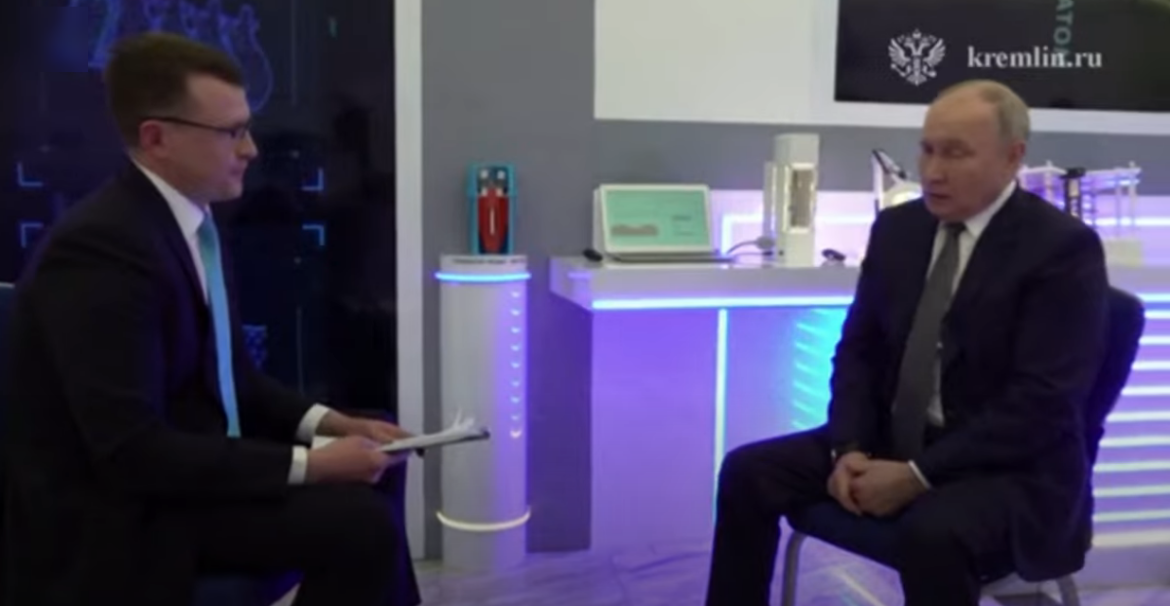In a political twist that has caught many by surprise, Russian President Vladimir Putin has publicly expressed his preference for President Biden over his predecessor, Donald Trump. The unexpected statement has ignited speculation and debate over the motivations behind Putin’s endorsement and its potential ramifications in the complex world of international relations.
Putin’s assertion that he would prefer to see Biden in office for a second term was revealed during an interview with a Russian journalist. The Russian President characterized Biden as a more “predictable” and “experienced” political figure, offering a stark departure from the turbulent dynamics that defined U.S.-Russia relations during the Trump era.
The timing of Putin’s comments is notable, given the ongoing conflict in Ukraine and the broader geopolitical tensions between Russia and the West. Analysts are now attempting to dissect the strategic considerations that may underpin Putin’s preference for Biden.
One possible interpretation is rooted in the idea that Biden’s leadership style and foreign policy approach are perceived by Putin as more amenable to Russia’s interests. The term “predictable” in this context suggests a certain level of consistency in dealing with international affairs, providing a stable basis for diplomatic interactions.
Moreover, Putin’s downplaying of concerns about Biden’s cognitive health adds another layer to the narrative. By recalling a meeting in Switzerland before the invasion of Ukraine, Putin subtly challenges the narrative around Biden’s mental acuity, potentially seeking to undermine criticisms from political opponents in the U.S.
The geopolitical landscape has shifted significantly since Biden took office, with the United States reasserting its commitment to alliances and taking a firm stance against Russian aggression. Putin’s endorsement could be a strategic move to influence the narrative and dynamics within U.S. politics, attempting to shape perceptions of the U.S. President on the international stage.
As the Ukraine crisis continues to unfold, Biden’s strong statements against Russian actions indicate a firm stance that contrasts sharply with the more ambivalent approach often associated with Trump’s tenure. Putin’s preference for a “predictable” leader may suggest a desire for a more measured and calculable adversary in the global arena.
While Putin’s endorsement of Biden may seem surprising, it underscores the intricate nature of international relations, where leaders must navigate a delicate balance between cooperation and competition. The evolving dynamics between the U.S. and Russia will undoubtedly be closely monitored, with Putin’s unexpected remarks injecting an element of unpredictability into an already complex geopolitical landscape.
In the coming weeks and months, the international community will be watching for any shifts in diplomatic relations and assessing whether Putin’s stated preference for Biden translates into tangible changes in the geopolitical chessboard.
The geopolitical chessboard took an intriguing turn as former President Donald Trump responded to Russian President Vladimir Putin’s surprising statement that he would prefer President Biden to win the 2024 U.S. election over Trump. Trump’s reaction has added a new layer of complexity to the evolving dynamics between the United States and Russia.
In a series of tweets and a statement released through his spokesperson, Trump expressed both disdain and skepticism regarding Putin’s stated preference. The former President questioned the sincerity of Putin’s remarks, highlighting the complexities of international politics and the multifaceted relationships that define global diplomacy.
Trump’s initial response emphasized the friendly rhetoric exchanged between him and Putin during his tenure, emphasizing their personal rapport and shared interests. The former President insinuated that Putin’s preference for Biden might be a strategic maneuver aimed at influencing U.S. politics or deflecting attention from Russia’s actions in Ukraine.
Political analysts are now dissecting Trump’s reaction, attempting to gauge its potential impact on the upcoming 2024 election. Trump’s continued popularity within the Republican Party and his potential candidacy for the presidency loom large over the political landscape. The former President’s response to Putin’s statement may shape narratives surrounding foreign policy and national security, crucial aspects of any election cycle.
The Trump-Putin dynamic has been a subject of scrutiny, with critics often pointing to the perceived warmth between the two leaders during Trump’s presidency. Trump’s assertion that he had a more favorable relationship with Putin than Biden challenges the narrative put forth by the current administration regarding a more assertive stance against Russian aggression.
As the 2024 election approaches, the unexpected endorsement from Putin has introduced a geopolitical wildcard into the U.S. political arena. How Trump navigates and leverages this endorsement, real or perceived, will likely become a focal point of political discourse, both domestically and internationally.
The broader implications of Putin’s statement and Trump’s response extend beyond personal preferences and delve into the intricate web of global power politics. The delicate dance between the U.S. and Russia continues, with each move scrutinized for its potential impact on alliances, conflicts, and the balance of power on the world stage.
In the coming weeks, Trump’s stance on Putin’s preference for Biden will likely evolve, and its resonance within American politics will become clearer. As the two nations grapple with complex geopolitical challenges, the interplay between their leaders and the potential consequences for the 2024 election will remain at the forefront of international affairs.



